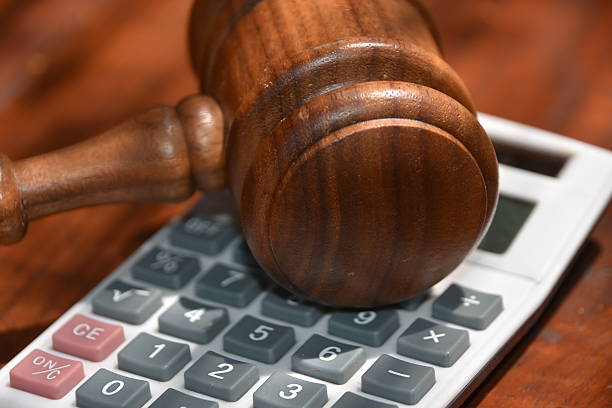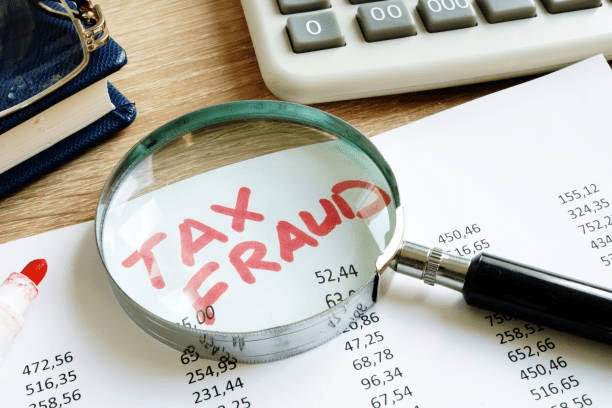What is tax fraud? Tax fraud (also known as tax evasion) means a person deliberately fails to declare some or all of their professional or business income. This can also be committed when a person dishonestly states their personal or business expenses in order to reduce the total amount of tax payable to the Australian Tax Office (ATO). This article discusses the offence of tax fraud.
How is Tax Fraud Committed?
The most common forms of tax fraud include:
- deliberately failing to declare some or all of your business or personal income,
- dishonestly overstating your business or personal expenses,
- individuals and businesses paying employees or other businesses in cash, or receiving cash payments, to avoid leaving an audit trail,
- not reporting cash wages,
- failing to claim Goods and Services Tax (GST)
- not paying employees their super entitlements,
- failing to lodge tax returns,
- claiming deductions for expenses that they do not actually incur (or are illegal), and
- failing to forward tax withheld from an employee’s wages to the ATO.
Individuals or businesses who engage in these tax offences either do so to evade their tax obligations as imposed on them by the Australian Government, or to fraudulently make a financial gain by manipulating the Australian taxation system.
The ATO holds the responsibility to deter, detect and deal with individuals who commit tax evasion. In doing so, the ATO conducts tax audits on businesses, companies and individuals on a regular basis. Once the ATO has determined that a tax offence has been committed, the ATO works with the Australian Federal Police and the Commonwealth Director of Public Prosecutions to restrain and confiscate assets obtained from a tax offence.
Penalties for the Offence of Tax Fraud
There are various penalties that can be imposed both under Commonwealth laws and laws in New South Wales (NSW) for tax offences.
Criminal Code Act 1995 (Cth)
Under the Criminal Code Act 1995, tax offences include the following:
- dishonestly obtaining Commonwealth property (Section 134.1(1)),
- obtain financial advantage by deception (Section 134.2(1)), and
- dishonestly cause a loss to the Commonwealth (Section 135.4(3))
The maximum penalty for offences under these Sections of the Criminal Code Act 1995 is 10 years’ imprisonment.
Taxation Administration Act 1953 (Cth)
The ATO imposes administrative penalties under the Taxation Administration Act 1953 for offences it believes are not serious enough for criminal prosecution. These prohibited forms of conduct include the following:
- Making false or misleading statements, adopting positions under the tax laws that are not reasonably arguable, and entering into certain tax avoidance schemes,
- Failing to lodge documents such as tax returns on time, and
- Miscellaneous breaches, such as the failure to keep requisite records.
The prohibited conduct generally carries a “base penalty amount” which tends to be a specified percentage of the “shortfall amount”.

NSW Tax Offences and Penalties
The NSW government penalises individuals and companies for tax evasion offences through the Taxation Administration Act 1996 (NSW). Prohibited conduct under this act includes:
- Knowingly giving false or misleading information to a tax officer (Section 55),
- Deliberately omitting information to a tax officer (Section 56), and
- Failure to lodge documents, statements, or returns required by taxation laws (Section 57).
The maximum penalty for these offences is 100 penalty units or a fine of up to $11,000.
How Does the ATO Investigate Cases of Tax Evasion?
The ATO takes fraud and tax evasion investigations seriously. When the ATO investigates a tax discrepancy, it seeks to determine whether fraud or tax evasion have occurred, or whether you have made an honest mistake. The ATO will look at whether you:
- Knowingly made false or deceptive statements,
- Withheld information to influence a tax outcome,
- Failed to keep adequate records to support a tax audit, or
- Intentionally omitted income from a tax return with no reasonable explanation.
To form an opinion whether there has been a case of tax evasion, the ATO is mandated to exercise sound judgement and fairness. In doing so, the ATO states that this opinion should be formed only by an executive or senior level officer, in accordance with ATO policies and practices.
The ATO also seeks specialist assistance including:
- Consulting with the relevant technical advisory division,
- Seeking formal assistance from the Tax Counsel Network (if the level of risk warrants it),
- Obtaining advice from the National Fraud or Evasion Advisory Panel (FE Panel), and
- Reporting instances of suspected fraud to the Australian Institute of Criminology (AIC).
Possible Defences for Tax Fraud Cases
Possible defences for an allegation of tax fraud include the following:
- Lack of Intent. This means you did not intentionally or deliberately avoid paying your taxes. It must be proven that you were not recklessly engaging in tax evasion.
- Factual Dispute. This defence may be raised if the individual disputes the facts alleged by the prosecution. The facts that may be disputed are the facts surrounding the alleged tax offence committed.
- Due care and diligence. This defence is often invoked by individuals acting in their capacity as a director or officer of a corporation or business. The individual concerned would argue that they have discharged due care and acted with diligence with regard to their tax liability or liabilities.
- Duress. The individual accused of tax evasion may argue that they were evading tax under duress or that they were unlawfully coerced into evading tax by a third party.

Seeking Legal Advice About the Tax System
While filing your tax returns can be tiring and paying your taxes can be burdensome, the law perceives tax fraud as a serious criminal offence. The law frowns upon individuals or businesses who do not declare their taxes truthfully.
But perhaps, you have committed an honest mistake when filing your taxes. You did not intentionally omit something that you should have declared and now you’re facing a case of tax fraud. Seek advice for all such matters.
JB Solicitors has a leading team of lawyers who can help with your situation. We offer legal advice to your case and legal representation should the matter escalate to the Courts. We can advise you on what steps to take in case you are facing a tax criminal case.
Do you have more queries on tax fraud? Contact us today.
